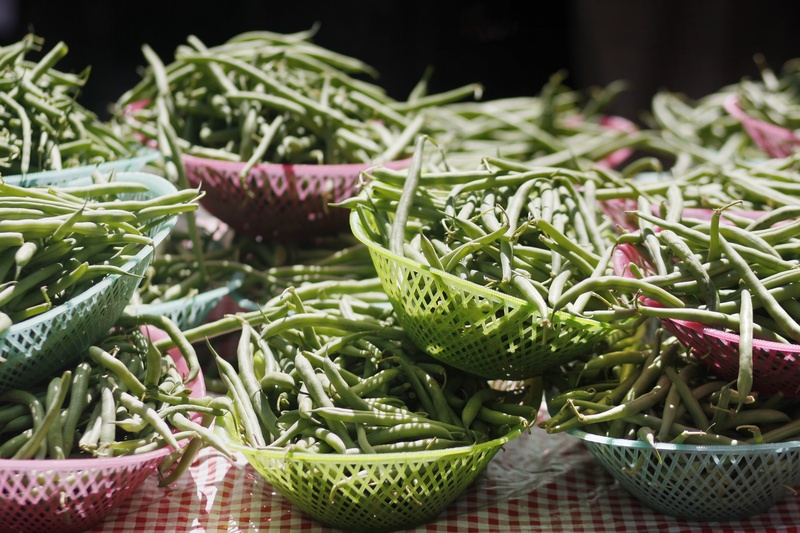A national group of organic farmers headed by a potato grower from Maine was handed a legal setback Monday when a federal judge sided with agricultural and chemical giant Monsanto in a lawsuit challenging its patents of genetically modified seeds.
U.S. District Judge Naomi Buchwald of the Southern District of New York dismissed the lawsuit before it went to trial.
The lawsuit questioned the validity of Monsanto’s patents on genetically modified seeds.
It also sought to give organic farmers blanket protection from lawsuits filed by the company claiming patent infringement should their crops be contaminated by Monsanto’s genetically altered plants.
The lawsuit was filed in March 2011 by the Organic Seed Growers and Trade Association and more than 80 agricultural and consumer groups, with legal backing from the Public Patent Foundation, a nonprofit group that works to reduce abuses of the U.S. patent system.
By law, certified organic crops cannot contain genetically modified components. Such contamination could force farmers to lower prices for their crops or destroy them.
While acknowledging that some of the plaintiffs had stopped growing certain crops for fear of being sued, the judge ruled that the plaintiffs lacked standing to bring the lawsuit and called the farmers’ claims that they could be subject to patent-infringement lawsuits “unsubstantiated” because “not one single plaintiff claims to have been so threatened.”
Jim Gerritsen, who heads Wood Prairie Farm in Bridgewater and is the president of the Organic Seed Growers and Trade Association, said he was disappointed with the ruling.
“It was a flawed and erroneous ruling,” Gerritsen said. “We have farmers who have already been impacted on their farms. We have farmers who’ve given up growing organic corn, organic soybeans and organic canola on their farms for fear of being sued. It’s a very poor decision, full of error.”
Monsanto praised the ruling saying in a statement it “makes it clear that there was neither a history of behavior nor a reasonable likelihood that Monsanto would pursue patent infringement matters against farmers who have no interest in using the company’s patented seed products.”
Monsanto has maintained throughout the case that it wouldn’t sue farmers whose crops are inadvertently contaminated by its genetically engineered seeds.
Gerritsen dismissed those assurances.
“Monsanto’s commitment is vague and not legally binding,” Gerritsen said. “There is nothing that would prevent them from changing their mind tomorrow and pursuing us for patent infringement.”
In her ruling, Buchwald cited a Monsanto blog as proof of the company’s commitment not to sue organic farmers.
Buchwald acknowledges the threat of contamination is real, writing: “transgenic seeds may contaminate non-transgenic crops through a variety of means, including seed drift, or scatter, crosspollination, and commingling via tainted equipment.”
The ruling also states that farmers shoulder the burden of maintaining transgenic-free crops by establishing buffer zones on their properties and paying to test their crops to make sure they’re not contaminated.
According to the U.S. Department of Agriculture, genetically modified seeds accounted for more than 90 percent of soybeans and more than 70 percent of corn planted in 2011.
In the ruling, Buchwald stated that Monsanto brought 144 patent-infringement lawsuits against farmers from 1997 to 2010, or an average of 13 per year.
“This average of roughly thirteen lawsuits per year is hardly significant when compared to the number of farms in the United States, approximately two million,” Buchwald wrote.
However, University of Maine School of Law professor Rita Heimes, who directs the Center for Law and Innovation, said Monsanto’s patent-infringement lawsuits are unique in the intellectual property field.
“I think Monsanto’s litigation strategy has been very aggressive compared to other patent holders,” Heimes said. “Because Monsanto sues its customers, it does make all farmers nervous.”
Most patent-infringement lawsuits involve one manufacturing company suing another for appropriating patented technology, Heimes said.
“Had this judge ruled the other way this would have been a much bigger case in the field of intellectual property,” Heimes said.
Daniel Ravicher, who heads the Public Patent Foundation and was the lead attorney for the farmers, said the plaintiffs are considering an appeal. They have until the end of March to decide.
“When (non-genetically modified organisms) farmers are under threat, that means all consumers are at risk of losing their access to good, clean food,” Gerritsen said. “We have to wake people up to the injustice family farmers are up against. Our livelihoods are at stake.”
Staff Writer Avery Yale Kamila can be contacted at 791-6297 or at: akamila@pressherald.com
Twitter: AveryYaleKamila
Send questions/comments to the editors.



Success. Please wait for the page to reload. If the page does not reload within 5 seconds, please refresh the page.
Enter your email and password to access comments.
Hi, to comment on stories you must . This profile is in addition to your subscription and website login.
Already have a commenting profile? .
Invalid username/password.
Please check your email to confirm and complete your registration.
Only subscribers are eligible to post comments. Please subscribe or login first for digital access. Here’s why.
Use the form below to reset your password. When you've submitted your account email, we will send an email with a reset code.